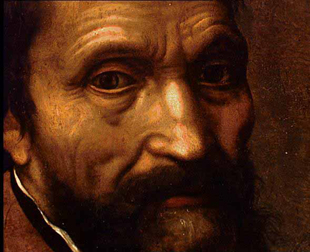Predicting the unpredictable
 Most of us know what happened in the past. So, we do not expect an
astrologer to tell us what happened unless we wish to test his
knowledge. We also know what we do in the present. For instance, you
decide to watch your favourite television program. You switch on the
television and settle down to do so. As such even the present does not
pose a problem to us. But the problem begins when we wish to know what
is in store for us in the near or distant future. Most of us know what happened in the past. So, we do not expect an
astrologer to tell us what happened unless we wish to test his
knowledge. We also know what we do in the present. For instance, you
decide to watch your favourite television program. You switch on the
television and settle down to do so. As such even the present does not
pose a problem to us. But the problem begins when we wish to know what
is in store for us in the near or distant future.
Astrologers and soothsayers have a field day because most people want
to know their future. Fortune tellers come in different forms. Some of
them claim to have studied the science of astrology locally or in India.
They claim to have doctorates from universities. They are ready to cast
your horoscope and tell you what will happen to you in 10 or 20 years
from now. They predict examination or election results.
Most people in Sri Lanka and India have implicit faith in astrology.
Astrologers are consulted when a child is born. Other occasions we
consult them are marriage, illness, employment, foreign travel and how
we would fare in competitions.
Astrologers
Prior to the recently concluded Presidential election, many leading
astrologers predicted the victory of former President Mahinda Rajapaksa
and the incumbent President Maithripala Sirisena. They were vehemently
marketing their predictions to unsuspecting members of the public.
However, when the results were announced those who predicted the victory
of former President Rajapaksa had to hang their heads in shame. None of
them explained why their predictions went haywire.
|

Everything is known, not according to itself, but according
to
the capacity of the knower.
- Anicius Boethius |
Now the dust has settled and the so-called astrologers are trotting
out lame excuses. A leading astrologer who predicted the victory of
former President Rajapaksa confessed that even Homer nods. Most people
are likely to forget their unrealistic predictions and consult them
again because Sri Lanka is a fertile ground for gullible people.
In the fifth century CE Romans too had the desire to know what was in
store for them. As there were no astrologers, they turned to
philosophers to know their future. The Roman philosopher Anicius
Boethius (c. 480-525) said only God knows what we are going to do in the
future. Although he was trained in the Platonist tradition of
philosophy, Boethius was a staunch Christian.
Taj Mahal
Like all Christians, Boethius believed that God knows everything, not
only the past and the present, but also the future. When you decide to
go for a walk in the evening, God knows it. If you plan to visit the Taj
Mahal, God knows it. It seems, therefore, that you are not really free
to choose to go for a walk because that would conflict with what God
already knows.
Boethius, however, solved the problem in a different way. He said
what you are planning to do in the future can be known to God in
different ways. For instance, most animals have an instinct of what
would happen in the immediate future. It is said that most animals fled
when the tsunami hit the coastal belt in 2004. A human does not have a
well-developed instinct but he has the faculty of reason to sense
impending disasters and to take precautions.
Boethius said we live in the flow of time. Therefore, we know what
happened in the past. Similarly, we know what is happening now. We do
not need anyone else to predict the present events. But do we know what
will happen to us tomorrow or 10 years from now? Any rational person
will agree that we cannot know the outcome of uncertain future events.
Flow of time
According to Boethius, God is not in the flow of time. He lives in an
eternal present and knows the past, present and future in the same way
that we know the present. And just as my knowledge that you are reading
this column now does not interfere with your freedom to stop, so too
Godís knowledge of our future actions does not stop you from being free.
Some modern philosophers, however, are not convinced by Boethiusís
argument. They say that since you have not yet decided whether to stop
reading this column, there is simply nothing to be known about it. Even
God who is all knowing does not and cannot know whether you will stop
reading or not. |

